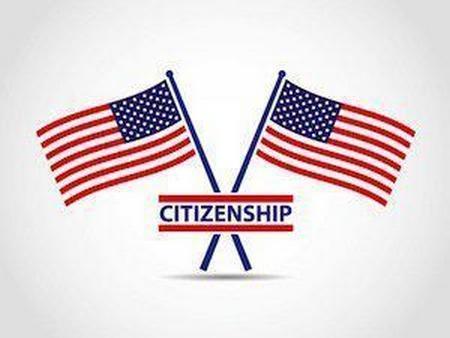Recent Blog Posts
Carbon Monoxide Poisoning Due to a Defect in Your Car
 An awful story came to light recently involving a car, a keyless ignition, and an innocent elderly couple. The couple's 2013 Lincoln MKS was left running in their attached garage, and by the time their home carbon dioxide alarm alerted them, it was too late.
An awful story came to light recently involving a car, a keyless ignition, and an innocent elderly couple. The couple's 2013 Lincoln MKS was left running in their attached garage, and by the time their home carbon dioxide alarm alerted them, it was too late.
A lawsuit has been filed and it cites several cases in which drivers had inadvertently left their vehicles running inside enclosed garages. The buildup of toxic odorless carbon monoxide gas seeped into homes and, in the case of the elderly couple, proved deadly.
Although a relatively new convenience, keyless ignition systems are available on several new cars sold throughout the United States. These systems allow drivers to start a car with the press of a button while their electronic "key fob" remains in their pocket or pocket book. A car will not start if the key fob is not detected inside the vehicle. However, what has emerged as somewhat of a defect is that once the vehicle has been started, these systems allow to the vehicle to continue idling even though the fob is no longer in the car.
How Illinois Wrongful Death Claims Work
 When a loved one dies too soon, the emotional and financial effects can last for the rest of your life. In Illinois wrongful death suits, the next of kin have the opportunity to collect compensation for the loss of their loved one.
When a loved one dies too soon, the emotional and financial effects can last for the rest of your life. In Illinois wrongful death suits, the next of kin have the opportunity to collect compensation for the loss of their loved one.
What You Can Recover
While money will never bring back or replace a loved one, it can help ease the financial burden, and it is the only way the law can try to right the wrong that was done to you and your family.
Wrongful death suits may allow the surviving family members to collect damages for:
- Funeral expenses;
- Lost wages;
- Loss of companionship;
- Grief; and
- Mental suffering.
The law is setup so that only the personal representative of a deceased person’s estate can file a lawsuit. Any damages collected are paid out to the next of kin in accordance with state law or any estate plan. The personal representative is often a close family member. Most estate planning documents, such as wills and trusts, will nominate someone to serve as the personal representative.
Obtaining the Right to Work: Employment Authorizations
 Many who seek to come to the United States, either permanently or temporarily, seek the right to work in order to support themselves. However, depending on the type of visa one holds, he or she may or may not be able to do so. An employment authorization document (EAD) must be obtained.
Many who seek to come to the United States, either permanently or temporarily, seek the right to work in order to support themselves. However, depending on the type of visa one holds, he or she may or may not be able to do so. An employment authorization document (EAD) must be obtained.
There is a fair amount of misinformation surrounding employment authorizations, and it is imperative that you, as an arriving immigrant, understand the truth.
Who Needs an EAD?
Holders of immigrant visas generally do not require an EAD in order to work. Lawful permanent residents (or ‘green card’ holders, the most common immigrant visa holders) may work by virtue of their Alien Registration Card. Non-immigrant visa holders do not require EADs to work if they are employed by the program that brought them to the country. For example, an F1 student seeking on-campus employment for less than 20 hours per week does not require an EAD. Refugees and asylees must also have an EAD in order to work, although employment authorization is almost universally granted at the time asylum or refugee status is conferred upon the person.
There are some non-immigrant visa holders who are required to have both an EAD and a Labor Certification, issued by the Department of Labor. Many mistakenly believe that the two are the same; however, they are in fact very different. An EAD grants the right to work, while a Labor Certification merely certifies that there are no more qualified applicants for a specific position, allowing the green card or non-immigrant visa petition to go forward. The EAD is also not employer-specific, while a Labor Certification must be re-applied for if a holder switches employers.
Is Virtual Visitation an Option in Illinois?
 Sometimes, even when the court orders visitation, a parent isn’t able to spend enough time with his or her child. Jobs that require frequent travel, or family circumstances, sometimes make it hard for parents to be there for regular visits. But, thanks to modern technology, in some cases there may be a solution to this issue. Virtual visitation allows for parents and children to connect through things like Skype, Facetime, webcams, email, and text messages.
Sometimes, even when the court orders visitation, a parent isn’t able to spend enough time with his or her child. Jobs that require frequent travel, or family circumstances, sometimes make it hard for parents to be there for regular visits. But, thanks to modern technology, in some cases there may be a solution to this issue. Virtual visitation allows for parents and children to connect through things like Skype, Facetime, webcams, email, and text messages.
When Virtual Visitation May Be a Good Idea
Illinois is one of the few states that has specifically dealt with the issue of virtual visitation in its family law statutes. Virtual visitation is not for cases where there has been abuse of any kind or misuse of the parenting time rules.
Virtual visitation is for situations where a parent cannot exercise in person visitation, or it is in the best interests of the child to have some virtual visitation in addition to physical visitation.
Personal Injury Claims for Victims of Drunk Drivers
 Accidents caused by drunk drivers injure and kill thousands of people every year. Often, the injuries from these accidents can take months or even years from which to recover. Some people will never fully recover.
Accidents caused by drunk drivers injure and kill thousands of people every year. Often, the injuries from these accidents can take months or even years from which to recover. Some people will never fully recover.
Under Illinois law, when you are injured because of someone else’s negligence, you may have a right to be compensated for your injuries, economic losses, pain and suffering.
Blood Alcohol Level and Negligence
Anyone found to have a blood alcohol level (BAC) of .08 or higher is legally intoxicated in Illinois. Hence, a driver cannot defend against claims for damages by claiming he or she was not impaired. Still, even if someone has a BAC of less than .08, he or she may still have been driving impaired and legally responsible for the accident.
Personal injury law requires that a person making a claim for damages be able to prove four factors:
Immigrating as a Minor
 Of the millions of immigrants that arrive in the United States each year, many are minors and are undocumented. Regardless of how they enter the United States, however, minors can face extra hurdles between them and lawful status in the country. Knowing the requirements for minors can help to avoid a lengthy court battle that can tax the patience of all involved.
Of the millions of immigrants that arrive in the United States each year, many are minors and are undocumented. Regardless of how they enter the United States, however, minors can face extra hurdles between them and lawful status in the country. Knowing the requirements for minors can help to avoid a lengthy court battle that can tax the patience of all involved.
Documented Minors
One of the most common issues that befalls immigrant minors, even if all their papers are in order, is that priority and cutoff date queues are so long that it is not unusual for minors to “age out” of the system. Minors are permitted, under U.S. law, to immigrate on their parent’s petition if certain requirements are fulfilled. However, if a child ceases to be a minor while his or her parent is awaiting approval, he or she is sometimes left behind with no options.
Senate Bill 1645: Law Gives Fresh Start to Survivors of Domestic Violence
 October is domestic violence month and in Illinois, several new laws protecting survivors of domestic violence have been passed to help support those who are the process of leaving an abusive relationship and starting new without their abusive partners in their lives.
October is domestic violence month and in Illinois, several new laws protecting survivors of domestic violence have been passed to help support those who are the process of leaving an abusive relationship and starting new without their abusive partners in their lives.
Senate Bill 1645: Amendment to the Public Utilities Act to Provide 60-Day Grace Period
One of the most recent bills to be passed is Senate Bill 1645. This bill amends the Public Utilities Act, which provides that survivors of domestic violence who are in the process of running away from their abusers are given a deferral from having to pay initial deposits for utility services immediately upon move in to a new home. Generally, when people move into a new home, there are initial deposits and service fees to initiate the utilities within the home. For those who are survivors of domestic violence and are fleeing from their abusers, finding a home for themselves and their children immediately after fleeing the shared home with their abuser can be difficult.
Why Your Slip and Fall May be More Dangerous than You Think
 Most people have experienced a minor slip and fall while out at a shopping mall or other store. Besides a little embarrassment, injuries are often minor and people are able walk away without any issues. However, every year thousands of people are seriously injured in slip and fall accidents, causing large medical bills and forcing them to miss work.
Most people have experienced a minor slip and fall while out at a shopping mall or other store. Besides a little embarrassment, injuries are often minor and people are able walk away without any issues. However, every year thousands of people are seriously injured in slip and fall accidents, causing large medical bills and forcing them to miss work.
When a Slip and Fall is Serious
Almost anyone who slips in a public place will want to try and get up as quickly as possible because they are embarrassed. Still, a simple slip, even for a healthy adult, can cause torn ligaments, twisted ankles, or even fractured bones. Sometimes you may not be able to get up without help after a fall.
Medical costs may include surgery, physical therapy, and prescriptions for painkillers. These expenses can bankrupt a person if he or she does not have adequate medical insurance. Once you factor in the costs of having to miss work because of the injuries, you could end up in a big financial hole.
What is Birthright Citizenship?
 With the increased frequency of discussion regarding immigration and citizenship questions leading up to the presidential election cycle, some issues debated for years are making their way back into the national mainframe. One of them is the question of birthright citizenship, which commonly becomes confused with other immigration statuses. It is imperative to correct the misinformation being bruited, lest potential immigrants be confused about the status to which they are or are not entitled.
With the increased frequency of discussion regarding immigration and citizenship questions leading up to the presidential election cycle, some issues debated for years are making their way back into the national mainframe. One of them is the question of birthright citizenship, which commonly becomes confused with other immigration statuses. It is imperative to correct the misinformation being bruited, lest potential immigrants be confused about the status to which they are or are not entitled.
What is Birthright Citizenship?
Birthright citizenship is the modern term for the Latin rule of jus soli, “law of the soil.” Jus soli is the counterpart to the rule of jus sanguinis, “law of the blood,” in that it grants citizenship in a country based on where a child is born, as opposed to where the bloodline of their parents is based. It is a common law rule, meaning that it was passed down to United States jurisprudence from its origins in English law.
Transformation of the Illinois Marriage and Dissolution of Marriage Act: College Expenses for Non-Minor Children
 In the past in Illinois and currently in many states, one of the expenses that is most forgotten about and least likely to be arbitrated comprises the tuition expenses for college. In most families that have not gone through a divorce, it would be the family helping out the non-minor with paying the tuition if it is financially viable for the parents. During a divorce, however, marital property may be divided and the child support may be administered for the daily care of the child; however, other expenses may be overlooked, including the tuition expenses currently incurred (with the child goes to private school), and later, the tuition expenses for that child to go to college.
In the past in Illinois and currently in many states, one of the expenses that is most forgotten about and least likely to be arbitrated comprises the tuition expenses for college. In most families that have not gone through a divorce, it would be the family helping out the non-minor with paying the tuition if it is financially viable for the parents. During a divorce, however, marital property may be divided and the child support may be administered for the daily care of the child; however, other expenses may be overlooked, including the tuition expenses currently incurred (with the child goes to private school), and later, the tuition expenses for that child to go to college.
Pre-IMDMA Illinois Case Law Surrounding Educational Expenses and Tuition
Before the Illinois Marriage and Dissolution of Marriage Act (IMDMA), Illinois made a significant push to incorporate tuition expenses for a non-minor child into the divorce settlement agreement. Many of the issues that came up looked at whether or not the tuition expenses were reasonable. For example, if a child was applying to an expensive private school out of state, would the court provide that as reasonable or should the child be only permitted to attend public college in-state? The court and its past case law provided that the non-minor would have to articulate and explain his/her educational choice and provide a reason why he/she should go to the college (and largely the justification for a more expensive school over a less expensive school.)
 English,
English,
 Spanish,
Spanish,
 Polish,
Polish,
 Urdu
Urdu













 Make a Payment
Make a Payment



